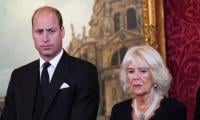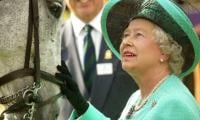ISLAMABAD: The federal government has proposed an allocation of Rs27.86 billion for the health sector for the financial year 2024-25, an increase from Rs24.21 billion allocated during the outgoing financial year. In addition, the government has approved 14 new schemes worth Rs19.86 billion under the Public Sector Development Programme (PSDP). A significant portion of the health budget, Rs21.63 billion, will be used to maintain hospital services, while only Rs891 million will be allocated for public health services, a decrease from Rs3.11 billion in the previous year.
The administrative cost of the health sector is projected to be Rs5.3 billion, up from Rs4.5 billion in 2023-24. The government has also allocated Rs32 million for the procurement of medical products, appliances, and equipment. A total of Rs27 billion has been allocated for 41 ongoing and new schemes, including Rs7.2 billion for ongoing schemes.
For the first time in history, the federal government has allocated Rs5 billion for the Prime Minister’s National Programme for the Elimination of Hepatitis C, a Rs70.84 billion project.
The federal government will contribute Rs35.42 billion, with provincial governments matching this amount over five years. The project aims to eliminate Hepatitis C (HCV) infections in Pakistan by screening 69.028 million people (aged 12 and above), confirming diagnoses (PCR) in 5.155 million, and treating 4.124 million individuals. The project also includes developing an information system, capacity building, supply chain management, monitoring & evaluation, and behavior change communication.
The federal government has also allocated Rs2 billion for the Prime Minister’s National Programme for the Prevention of Diabetes. This programme aims to prevent, diagnose, and treat diabetes through awareness, advocacy, communication, diagnosis at primary healthcare facilities, and referrals for treatment at higher-level facilities. It includes providing diagnostic kits, procurement of medicines, training and capacity building of healthcare workers and conducting awareness campaigns.
Additionally, Rs5 billion has been allocated for the construction of the Quaid-e-Azam Health Tower at the Pakistan Institute of Medical Sciences (PIMS), Islamabad, a Rs15 billion project to be built under a public-private partnership.
The Sehat Sahulat Programme has received Rs295 million for the National Health Support Project for Ensuring Universal Health Project in federating areas. This programme focuses on providing health assistance to the population below the poverty line.
Minister for Finance and Revenue, Senator Muhammad Aurangzeb, also announced a health insurance scheme for journalists and media workers while presenting the Federal Budget 2024-25 in the National Assembly. Under this scheme, 5,000 journalists and media workers will receive health insurance, with an additional 10,000 benefiting in the second phase.
Other new schemes include Rs2.050 billion for the procurement of equipment for a cancer hospital in Islamabad, Rs3 billion for the establishment of stroke intervention and expansion of critical care facilities at PIMS, Rs1.5 billion for the strengthening and upgrading of cardiology and other facilities at the Federal Government Polyclinic (FGPC) Islamabad, and Rs100 million for strengthening the drug control section of the health department ICT Islamabad to ensure the provision of safe and quality medicines to the residents of Islamabad.







